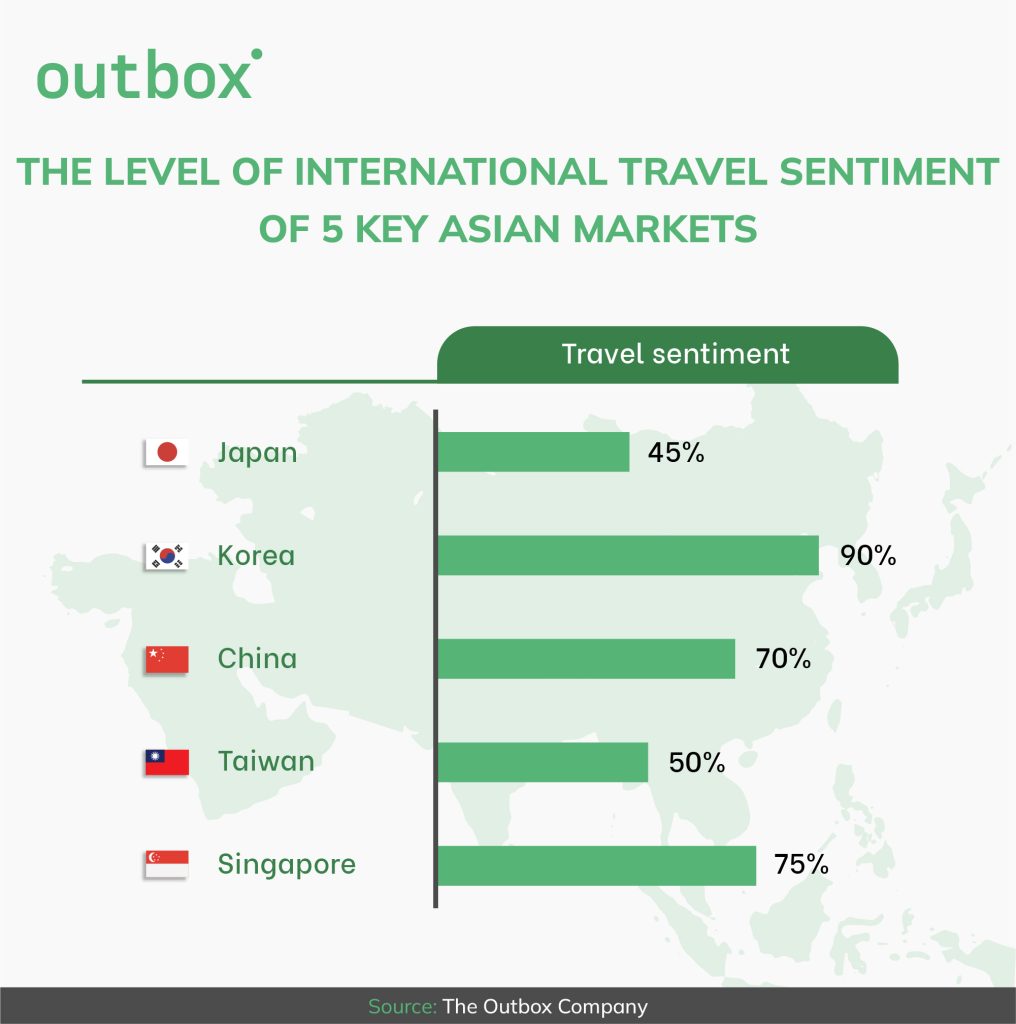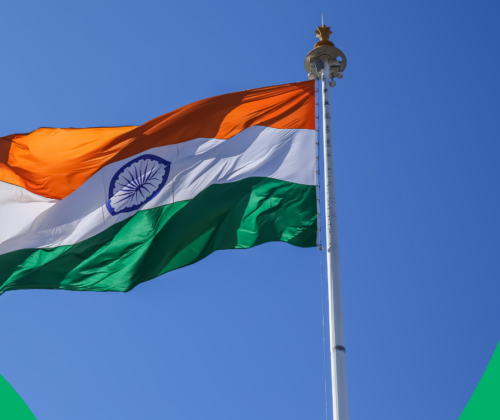In parallel with determining domestic tourism as a pioneering and sustainable solution, the reopening of international tourism will accelerate the recovery journey and help Vietnam’s tourism industry “get back to its old self” to thrive on the bounce back. However, to attract international travelers in general, and neighboring Asian travelers in particular to Vietnam safely and effectively, Vietnam’s tourist destinations need to re-study their insights about travel, especially when their behaviors and mindsets have changed immensely due to the impact of the Covid-19 pandemic. In particular, tracking the travel sentiment of international travelers is crucial for travel businesses and tourist destinations to build a route of welcoming international tourists as well as plan appropriate and effective product development, marketing and communications strategies.
According to data from The Outbox Company (Outbox), a travel & hospitality market research firm, travelers from South Korea and Singapore are likely to travel abroad once travel restrictions are eased. On the other side of the spectrum, China, Japan and Taiwan are quite hesitant and cautious about taking an international trip because the regulations on self-isolation and border closure of these two countries are stringent. Therefore, it can be concluded that the level of international travel sentiment of respondents across the 5 surveyed countries is significantly different.

Specifically, regarding the willingness to travel overseas, Korea and Singapore are expected to lead the way in travel optimism when the travel sentiments of these two markets are at 90% and 75% respectively. As a consequence of high vaccination rates and eased travel restrictions, South Korea and Singaporean travelers are expected to restart outbound travel at the earliest, compared to the other three markets surveyed.
Nevertheless, 70% of Chinese travelers are hesitant about rediscovering the world. The reason is the strict isolation requirements as well as the “Zero Covid” policy (wiping out infections in the entire community) from the government. However, the good news is that the young Chinese travelers might lead the trend of returning to international travel once the “Zero Covid” policy is lifted and the door of international travel is officially reopened.
With a rate of 45%, the lowest compared to other Asian markets surveyed, Japanese travelers remain cautious about traveling abroad due to their concerns about the complication of the global pandemic situation. This means that Japanese travelers will only take an international trip when the global pandemic situation is well controlled. Moreover, although the Japanese Government has been open to certain policies of tourism recovery and reopening of international travel, the Japanese travelers remain hesitant to travel overseas. It poses a myriad of difficulties for travel businesses and tourist destinations in Vietnam, with accurately predicting when the Japanese travelers have intent for returning international travel. However, Japanese respondents said that they also keep the intention to travel internationally because they are in the process of collecting information and planning for the next international trip. In the same way, the level of international travel sentiment of Taiwanese travelers is relatively low (50%) by the fact that they have a tendency to consider the current situation of the pandemic when choosing destinations for their next trip. Furthermore, the main reason why the majority of Taiwanese travelers are not willing to return to international travel is that the vaccination rate in this country is low compared to other countries in neighboring areas.
It can be seen that the international travel sentiment of Asian travelers depends not only on the government regulations of the origin country but also on the optimal control of the pandemic as well as the “openness” to the regulations and policies of the receiving country.
Recently, many countries in the neighboring areas have eased travel restrictions and restored regular international commercial flights. These positive signals will create favorable conditions for Vietnam tourism to break the “frozen statement” and officially welcome international travelers back on March 15.
Source: The Outbox Company



